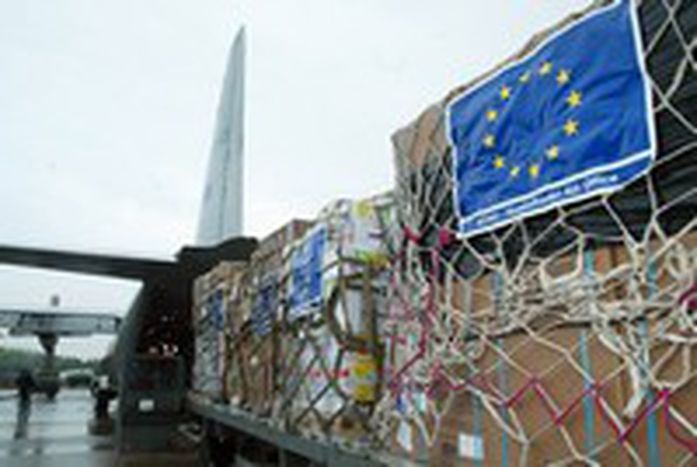
What the Iraqis want from Europe
Published on
Translation by:
 akasemi newsome
akasemi newsome
A year ago, the EU committed itself to Iraq’s reconstruction. What has happened since?
The January 2005 elections laid the foundations for Iraq’s democratic reconstruction. However, given the recurring violence, it will be difficult for the country to establish internal security and democratic rule of law on its own. This is why the USA and the EU issued a joint declaration of their support for anti-poverty measures, pro-government and pro-civil society initiatives and the enforcement of human rights. But what concrete steps has the EU taken to back up its promises?
A nation torn apart
As a result of the Iraqi elections, several diverse groups will share power on both the national and provincial levels. The Shiite United Iraqi Alliance was the big winner with 48.2 percent of the vote and maintains a slim absolute majority in the national assembly according to the interim mandate. The second large block consists of the Kurdish Alliance with 25.7 percent of the vote. The Kurdish Alliance is split into two camps: one of Islamic fundamentalists, who want the constitution to be anchored in Sharia law; and secular Kurds desperate for autonomy. A last key ethnicity, the Arab Sunnis, boycotted the election on the grounds that it was run by American occupiers. It will be the task of the new Iraqi Prime Minister, the moderate Ibrahim Al-Jaafari, to steer cooperation between the political parties and make overtures to the Sunnis.
Once parliament convenes, the newly elected national assembly has to draw up and submit a new constitution by Aug 15, 2005, which the Iraqi people have two months to ratify. Once the constitution is ratified, then the people will choose a standing parliament in late 2005. Of course, the Iraqis will continue to need international, particularly military, support but under the current agreement of UN Resolution 1546, the blue helmets’ tour of duty in Iraq ends in 2005.
Polish, British and Italian soldiers count among the members of the EU military contingent in Iraq. The Iraqi people see the foreign troops as occupiers rather than freedom fighters, as is reflected in the constant attacks against soldiers. It is not only military aid which Europe is supplying, but help for civil society (the politically engaged public) is concentrated in the business sector. Additional sums flow into reconstruction funds for administration and infrastructure, anti-poverty measures and support for the oil and electricity ministries. A mere fifth of the 200 million set aside for the reconstruction of Iraq will actually be applied towards strengthening democracy, protecting human rights and bolstering civil society.
Europe undecided
A strong civil society is a key prerequisite for a democratic Iraq and there are many ways for Europeans to stay engaged in this respect. For example, the new Iraqi government asked the EU to set up an official representation to increase EU visibility. Such a presence would show the people that Europe is not just militarily engaged. Of course the EU hesitates, not least because of the security situation. Iraq would really benefit if ongoing programmes to train police, judges or politicians were expanded. In particular, Iraq stands to gain from EU expertise in institution building: federalism seems to be the best possible solution for a stable division of power between the three big ethnic groups in Iraq.
What the EU has to ask itself is why Iraq is not included in the Euro-Mediterranean partnership like its neighbours Syria, Jordan and Turkey. The EU created this programme to strengthen civil society and set up regional networks. In this way, the EU could use already functioning systems instead of expending effort to create new programmes. The EU needs to overcome its indecisiveness regarding the Iraqi situation and take serious steps to stabilise the young democracy beyond military engagement.
Translated from Die Iraker wollen mehr von Europa


